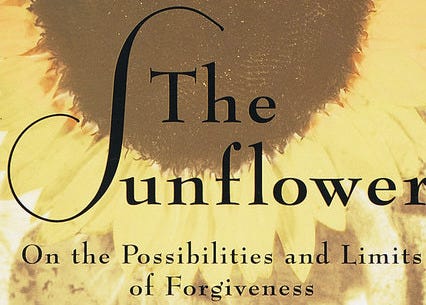Is Micah 6:8 Even Possible Anymore?
(Writer's Note: The day after I wrote on the Israel-Palestinian conflict and Micah 6:8 this week the Israeli Cabinet agreed with Prime Minister Netanyahu for the Israeli Defense Force to occupy / take over Gaza. Shortly before this announcement, 19 former IDF chiefs of staff, heads of Mossad and Shin Beit, and other former IDF officers issued a statement and video about the war. You can watch the 3-minute video here.)
Spend any amount of time in Israel and the West Bank and you will see barbed-wire, fences, walls, and a maze of checkpoints and blockades. They are stark reminders of a conflict seemingly without end.
Having reflected on Micah 6:8 for the past month or so, I have asked myself this sobering question more than a few times: Is Micah 6:8 even possible anymore?
Old Testament scholar Bruce Waltke is helpful in his commentary on Micah. He asks the question:
What does it take for a person of faith to act justly, to love mercy, and to walk humbly with God? He makes three points, which are both straightforward and profound in their difficulty for most of us.
First, Waltke says it is only the truly REPENTANT who will be activists for full-orbed justice. Why is that? Because the one who is repentant knows that he or she has sinned and must turn from evil and injustice. When we grasp the injustice in our own hearts and receive healing from God only then can we seek justice for the oppressed.
Second, those who know they are FORGIVEN can show mercy to others. This reminds me of Simon Wiesenthal, the Holocaust survivor and author of The Sunflower: On the Possibilities and Limits of Forgiveness. It is the tragic story of a young Nazi soldier who was part of a group of SS officers as they gathered Jews from Wiesenthal’s village, forced them into a house, and then lit the house on fire.
Wiesenthal escaped but spent much of World War II as a prisoner of the Nazis. Later in the war he served in a military hospital for German soldiers. Years after the house was burned and scores of Jews exterminated inside, that same Nazi soldier was brought to the hospital with severe wounds. Wiesenthal had to care for the man, who was soon to die. Shortly before his death the soldier confessed to Wiesenthal and asked for mercy. The book ends at that point, without Wiesenthal saying whether he forgave the man or not.
Most observers believe that Wiesenthal did not show mercy to the man. The soldier perished, unforgiven by the Holocaust survivor.
It is an extreme act of mercy and kindness to ever forgive someone who has perpetrated such evil on your people. And I am not advocating that the soldier should not have been accountable for his crimes.
Nonetheless, Micah 6:8 is an “extraordinary” or supernatural command and calling! It is beyond our natural human posture to show mercy to someone who has wronged us. It is only when we encounter God’s forgiveness in our own lives and grasp the unspeakable sacrifice He made in Jesus dying for humanity that we can and must consider the quality of mercy we show to others.
Third, it is the CONTRITE who walk humbly with God, according to Waltke. To become contrite is what Jesus describes in the Beatitudes as, “blessed are the poor in spirit, for theirs is the kingdom of heaven” (Matthew 5:3) and “blessed the meek, for they will inherit the earth.” (Matthew 5:5)
Contrition is the antidote to pride. We who are the wealthy, powerful, and influential in the world must heed the calling of Micah 6:8. Want to walk humbly with God? Cultivate a contrite heart.



